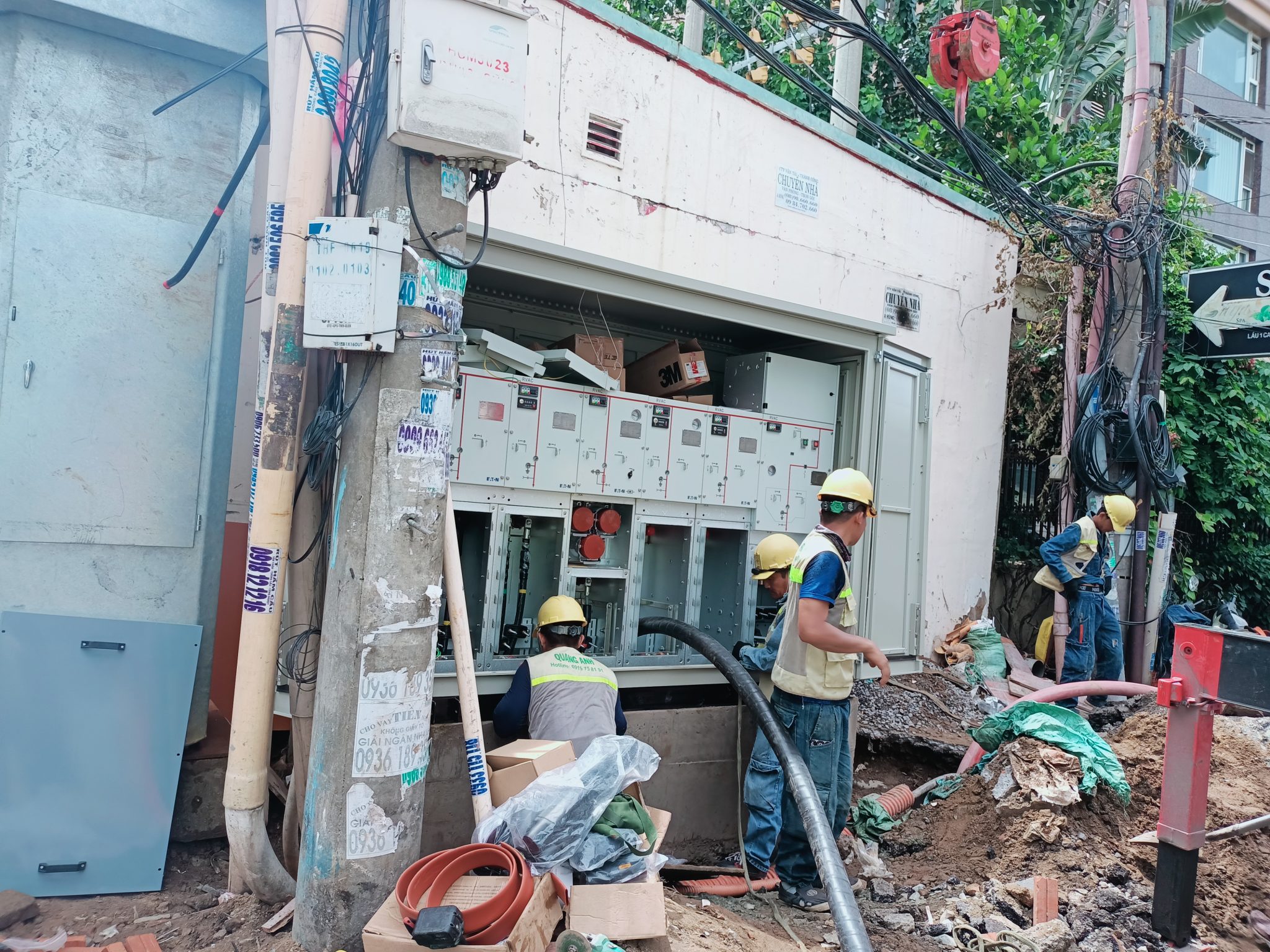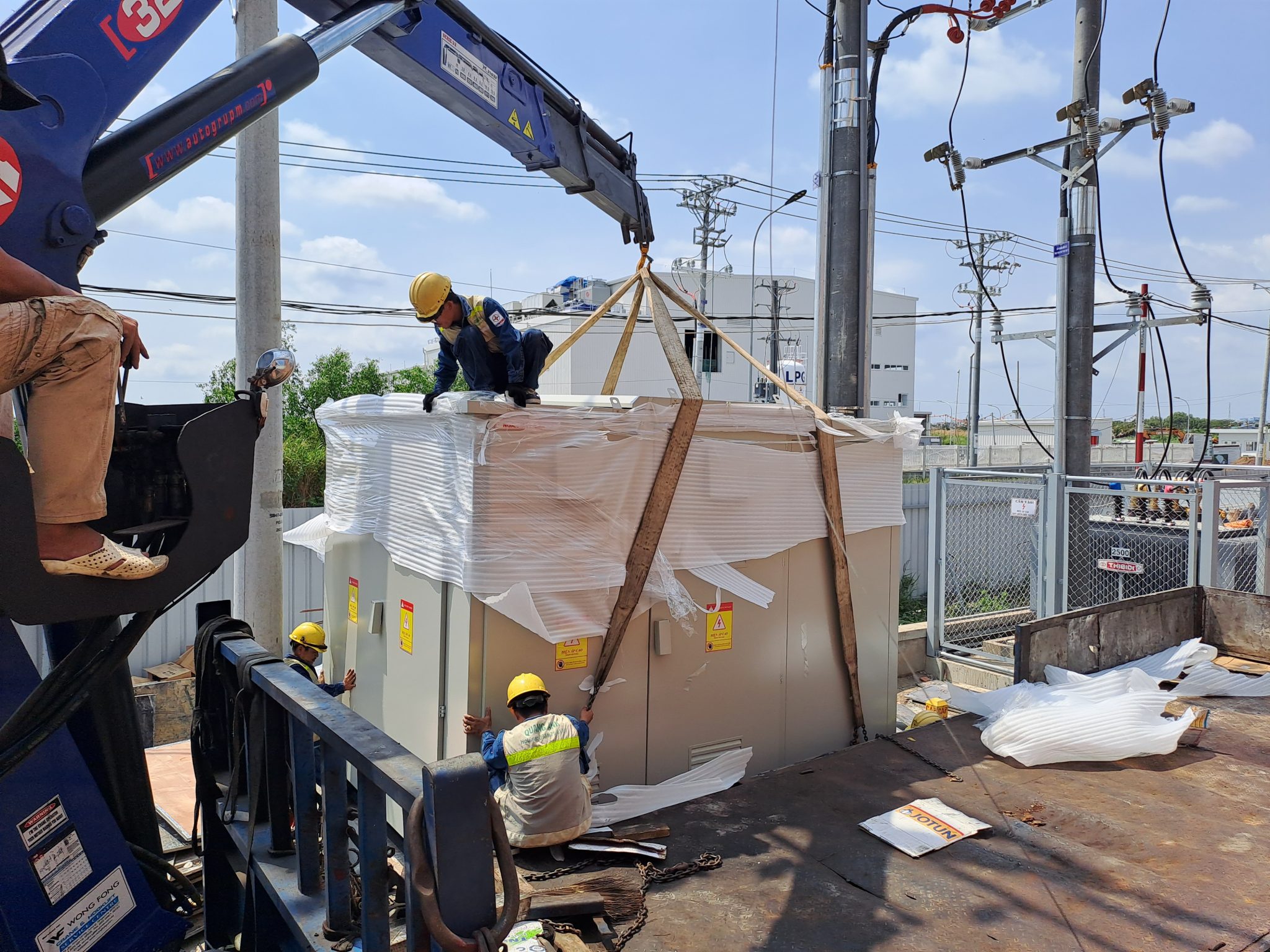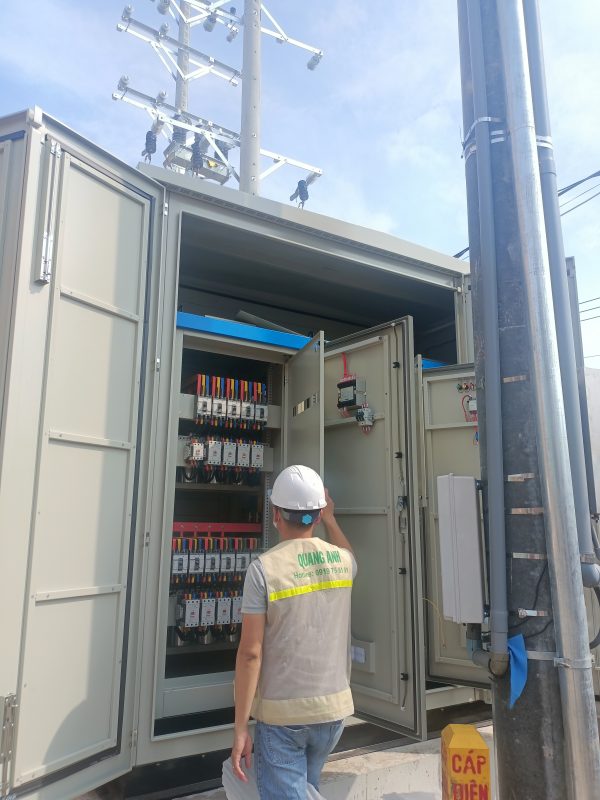Establishing an electric vehicle charging station involves adhering to meticulous legal processes, including acquiring necessary documentation, understanding the permit application, adhering to location and safety standards, and additional procedures for service provisioning.
Essential Documentation for Electric Vehicle Charging Stations
Constructing a charging station requires specific legal documents to legitimize the infrastructure. Necessary permits, safety certificates for fire prevention, and electricity regulations are crucial to comply with the law and avoid legal risks during operations.
Preparing these vital documents is essential for legal compliance and protecting business interests. Below is a summary of the essential paperwork required to set up a charging station.
1. Land Use Certificate
- Ensuring legal land use rights is critical. Businesses must possess either a land use certificate or lease agreements.
2. Business Documentation
- Legal identity documents for investors are required, including:
- Business registration certificate.
- Investment certificates or decisions.
3. Personal Identification
- Documents such as citizen identification cards and any necessary authorization documentation are mandatory for individuals involved.
4. Construction Permit
- Mandatory to ensure compliance with urban planning and construction standards as outlined by relevant legal regulations.
5. Fire Prevention and Environmental Protection
- Fire prevention confirmation to verify installations comply with safety procedures.
- An environmental protection certificate is essential to minimize ecological impacts.
6. Additional Confirmations
- Documentation verifying conformity with local planning requirements ensures station compatibility with its surroundings.
- Contracts or handover agreements are necessary depending on the location.
Throughout the project, investors must adhere to construction investment principles to maintain quality and safety standards during operation.

The Permit Application Process
Obtaining permits for charging stations involves a structured process beginning with comprehensive file preparation, including required documentation and detailed construction plans. Submissions must then be made to local construction authorities. Professional guidance and a thorough understanding of legal requirements are crucial to ensure timely and successful permit acquisition.
Construction Permit
- Exemption Rules: Charging stations are not exempt from requiring construction permits per updated legal guidelines.
- Procedures: Current legal frameworks guide the permit application process. Compliance with local planning and land-use requirements is essential.
Technical and Safety Requirements
- Fire Safety: Systems must include robust fire prevention alarms and automatic power shut-off capabilities.
- Charging Equipment: Certification for compliance with standard safety measures is required to prevent electrical hazards.
- Location Approval: Installation is permitted solely in designated, approved areas.
Planning and Implementation
- Regulatory Framework: Government directives ensure policy alignment and establish legal foundations for charging station planning.
- Additional support mechanisms to aid implementation are in development.
General Considerations
- Structural integrity and compliance with fire safety protocols in existing structures are paramount.
- No specific economic sector code currently exists for the industry, specifying the need for careful categorization within existing frameworks.

Location and Safety Regulations for Installation
The positioning of charging stations must align with governmental land use and planning regulations. To ensure the utmost safety, these stations require fire prevention certifications and periodic inspections per electric authority standards. User safety and vehicle protection remain top priorities in both installation and operation phases.
Amidst the rapid development of electric vehicle networks, strategic site planning ensures operational efficacy and safety. Stations should be installed according to approved layouts to maximize space utilization and traffic safety.
- Layout and Design: Stations must be located in compatible areas to minimize environmental and traffic safety impacts.
- Rest Stops: Newly codified transportation infrastructure mandates stations at major rest areas to support a national charging network.
- Parking Zones: Installations should occur in designated, authorized areas to ensure safety and efficient land use.
In terms of fire safety and technical requirements, stations must meet stringent standards:
- Technical and Safety Compliance: Stations must adhere to electrical and fire safety protocols.
- Structural Considerations: Installations within existing structures must not compromise load-bearing capacities.
- Environmental and Safety Protocols: Ongoing compliance with environmental protection guidelines is essential for sustainable operations.
These regulations ensure the sustainable and safe establishment of electric vehicle charging stations, promoting progress toward clean, sustainable industry practices.

Supplementary Procedures for Charging Services
Beyond foundational construction steps, deploying charging services requires quality and safety certifications for power delivery. Close collaboration with electrical management agencies ensures infrastructure is adequate to meet demand. Service management must align with sustainable energy norms.
Supplementary procedures for electric vehicle charging services extend beyond initial infrastructure setup, involving numerous legal and technical standards to maintain safety and effectiveness.
Legal Requirements
- **Construction Permits:** Detailed technical drawings and proof of land rights are necessary for legal operation.
- **Business Licensing:** Proper business licenses facilitate market participation in electrical charging sectors.
- **Power Supply Agreements:** Contracts with local utilities support safe, consistent power access.
- **Fire Safety Certificates:** Official confirmations ensure compliance with fire safety codes.
- **Electrical System Safety Certification:** Mandatory certifications guarantee the electrical system’s reliability and safety.
Technical Standards
- **Adherence to Technical Standards:** Strict compliance with electrical and fire safety standards is imperative.
- **Electrical System Design:** From design to installation, systems must meet capacity and stability requirements.
- **Environmental Responsibility:** All activities must comply with environmental protection and waste management standards.
Trends and Support
- **Policy Support:** Government policies may offer tax incentives or investment benefits to facilitate network expansion.
- **Green Movement Trends:** Charging services are integral to sustainable transport solutions, reducing carbon footprints and promoting environmental health.

Building electric vehicle charging stations offers significant benefits in technical, investment, and strategic domains. It satisfies the energy needs of green transport and opens valuable business opportunities in a burgeoning sector.
To ensure legal and effective operation of your charging station, connect with QuangAnhcons at +84 9 1975 8191.
QuangAnhcons provides comprehensive solutions for building and operating electric vehicle charging stations. We guarantee full compliance with legal and technical requirements, ensuring maximal quality and customer satisfaction.
[contact-form-7 id="7239967" title="Contact form 1"]


Related Posts
Tay Ninh Solar Power Planning: Technical Framework, Grid Interconnection, and Rollout Roadmap
Technical overview of solar planning in Tay Ninh: irradiation, grid capacity, permitting, design, operations, and [...]
Dec
Binh Duong Solar Planning: Regulatory Framework, Grid Interconnection, and an Implementation Roadmap for Factories and Industrial Parks
An overview of Binh Duong solar planning: legal framework, interconnection, design, risk management, and an [...]
Dec
Solar Farm Repair: O&M Workflow, IV Curve Diagnostics, Thermography, Inverter Service and Utility-Scale Safety
A utility-scale solar farm repair plan centered on O&M, IV curves, thermal imaging, inverter service, [...]
Dec
Dong Nai Solar Power Plan 2023–2025: Tri An 1,029 MW, Grid Upgrades and the DPPA Pathway
A complete look at Dong Nai’s solar power plan: Tri An 1,029 MW, irradiation potential, [...]
Nov
Quang Ngai Solar Power Plan 2024–2030: Legal Framework, Irradiance Potential, and Development Roadmap
A complete look at Quang Ngai’s solar power plan: capacity targets, irradiance (PVout), development zones, [...]
Nov
Solar Damage Assessment Services: On-Site Procedures, EL/IV/Thermography Testing & Compliance with Standards
Discover IEC/UL/NEC standard solar damage assessment processes: on-site evaluation, EL and IV curve testing, thermal [...]
Nov
Comprehensive Package Estimate for a 1800MVA 500kV Substation: Scope, Configuration 3x600MVA, Standards and Timeline Management
An overview of the 1800MVA 500kV substation estimate: construction scope, configuration 3x600MVA, GIS/AIS, SCADA, standards, [...]
Nov
Factory Electrical Systems: Comprehensive Design and Implementation Guide
Discover the detailed and safe process of factory electrical systems design and implementation. [...]
Oct
Blueprints Required for Factory Construction Permits
Discover the necessary blueprints in factory construction permit applications, from floor plans to electrical and [...]
Oct
What Are the Requirements for a Factory Construction Permit? A Comprehensive Guide
Explore the documentation and steps needed to secure a factory construction permit for streamlined project [...]
Oct
Factory Construction Permit Procedures in Vietnam: Essential Guidelines and Documents
Learn the procedures for securing a factory construction permit in Vietnam, focusing on document preparation [...]
Oct
Key Steps in the Factory Construction Process
Discover the essential steps and requirements for building factories. [...]
Oct
Comprehensive Electrical Substation Solutions by Quanganhcons
Discover the cutting-edge electrical substation solutions offered by Quanganhcons for industrial applications. [...]
Oct
Investment Costs for a 1MWp Solar Power System and Influencing Factors
Explore the investment costs for a 1MWp solar power system in Vietnam and the influencing [...]
Sep
QuangAnhcons: Elevating Wind Energy Solutions
Explore QuangAnhcons' leadership in wind energy and renewable solutions in Vietnam. [...]
Sep
Electrical Contractor Strategies at Becamex Industrial Park
Discover the strategic advancements and partnerships of the electrical contractor at Becamex Industrial Park. [...]
Sep
Investment Insights for 1MW Wind Energy in Vietnam: Costs and Opportunities
Discover the detailed analysis of costs and opportunities for investing in 1MW wind energy projects [...]
Sep
Advanced Electrical Installation Solutions by QuangAnhcons
Explore advanced electrical installation solutions and modern technology with QuangAnhcons. [...]
Sep
Enhancing Industrial Electrical Services with Quanganhcons
Discover Quanganhcons' expertise in industrial electrical services, offering efficient and sustainable power systems. [...]
Sep
Comprehensive MEP Solutions by QuangAnhcons: From Design to Maintenance Excellence
Discover optimal MEP solutions with QuangAnhcons, dedicated to excellence from design through maintenance. [...]
Sep